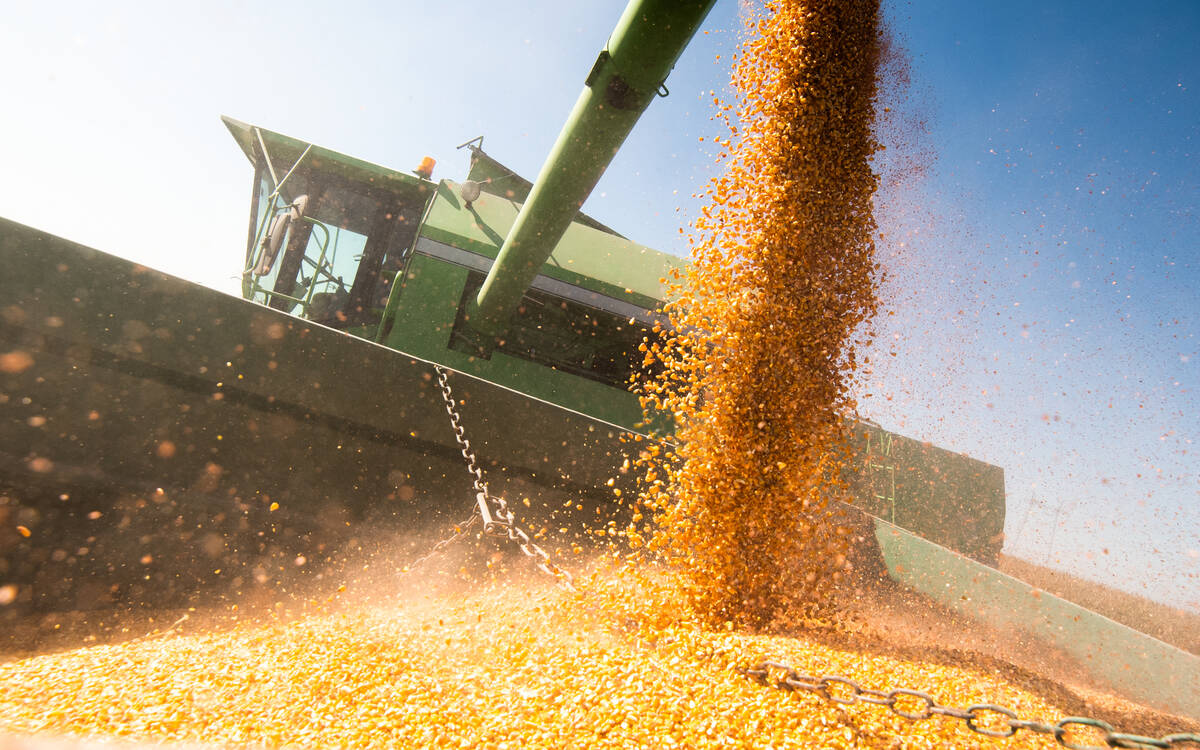UPDATED – The 2025 federal budget took a step forward in recognizing agriculture’s importance but failed to address pressing challenges like labour disruptions, interswitching and precision technology, say Canadian farm groups.
“For the first time in a decade or so, or maybe longer than that, agriculture was recognized as one of those strategic industries,” said Canadian Federation of Agriculture (CFA) president Keith Currie in an interview with Glacier FarmMedia.
Read Also

U.S. farm income set to fall in 2026 despite surge in government payments
The U.S. Agriculture Department forecast on Thursday that U.S. net farm income would fall 0.7 per cent this year.
“There’s a lot of stuff in there that, if we do our job, agriculture has the opportunity to get a hold of some much-needed programming and funding,” he said.
He pointed to investments in communications and transportation infrastructure like rail and ports as areas where agriculture could see benefits.
The Carney government’s budget, released Tuesday, contained several investments aimed to help diversify Canada’s export market at a time when sectors have been kneecapped by ongoing trade disputes with the U.S. and China. It also announced funding to initiatives like the AgriStability and AgriMarketing programs and cutbacks to Agriculture and Agri-Food Canada.
Trade diversification
In a news release, the CFA praised investments in the Canadian Food Inspection Agency (CFIA) to modernize its trade tools and expand market access for farmers and the re-establishment of the Accelerated Investment Initiative.
Currie said the CFIA funding could have positive impacts for the Canadian agricultural export market.
“That’s something I know we talked to our Mexican counterparts a lot about, how do we streamline and expedite the crossing of the borders?” He said. “Giving CFA some of those tools and … regulatory framework structure to help with that, I think is really important.”
Grain Growers of Canada praised the budget’s attention to trade diversification in a Tuesday written release but also cautioned against other measures it said could undermine the competitiveness of Canadian farms.
“I’m seeing first-hand how trade uncertainty is impacting grain farmers across the country,” said Grain Growers chair Scott Hepworth in the release. “With challenges in the U.S. and tariffs in China, producers are under real pressure. The new investments in digital export tools and market diversification are positive steps.”
The budget included measures to support small and medium-sized businesses find new markets abroad through CanExport. In a release following the budget, Canadian Chamber of Commerce president Candace Liang commended this new investment, which she said would keep Canadian businesses from being overly-reliant on the U.S market.
Organic
The Canadian Organic Growers weren’t surprised to see a lack of any specific focus on organic farming, but said many of the changes had potential to help the sector. New trade efforts could help diversify Canadian organic goods into the sought-after European and Indo-Pacific markets said Katie Fettes, Director of Policy and Research at Canadian Organic Growers.
“This whole focus on building our domestic infrastructure, including to support the trade diversification piece, that’s going to have a positive impact on the sector,” Fettes said, “including, definitely some of our growers in the Prairies that need that increased investment and access.”
One of the main goals for the Canadian organic sector’s recent Organic Action Plan is boosting organic production to keep up with market demand. Fettes said building infrastructure like transport and processing capacity can help with this goal.
Fettes said it was encouraging to see the budget aligning environmental and economic goals.
“Agriculture is a sector that really demonstrates that they have to go hand in hand.”
She said the idea of making environmentally sustainable outcomes financially beneficial is part of the whole point of the organic sector.
“Expanding organic production is, it’s going to … make our sector more competitive, but at the same time, it will have those climate benefits,” she said.
“There is that focus on competitiveness, being able to diversify, build resilience, and if we can connect climate into that, then all the better, because we’re kind of accomplishing two things at the same time.”
Budget cuts
The Grain Growers of Canada commended the permanent reversal of the capital gains tax increase but criticized the lack of commitments to interswitching. The producer group also expressed concern over plans to reduce AAFC’s operating budget by 15 per cent over three years, which it says could undermine research and innovation in the sector.
The Fruit and Vegetable Growers of Canada also expressed concerns that cuts to AAFC’s budget would hamstring its ability to modernize agriculture safety nets.
“Food security is national security,” said the organization’s president Marcus Janzen in a Wednesday statement. “Today’s budget continues to leave growers exposed to ongoing trade uncertainty and extreme weather events.”
The Fruit and Vegetable Growers also pointed to a lack investments in the greenhouse sector.
The Association of Equipment Manufacturers said it welcomed the government’s focus on infrastructure and workforce development, particularly the $75 million investment into the AgriMarketing Program.
Where the budget falls short, the association said, is in its lack of any funding for precision agriculture technology adoption.
Action on biofuels
The Advanced Biofuels Canada Association applauded the budget for its action on biofuels, which included $327 million over two years to a Biofuels Production Incentive.
“Canada’s biomass-based diesel producers – and feedstock suppliers – need predictable, stable demand and fiscal conditions to counter market barriers from tariff and non-tariff trade barriers,” the group’s president Fred Ghatala said in a news release.
“With smart, targeted support for domestic producers, Canada can keep biorefineries operating, and build resilient demand for Canadian feedstocks, such as canola.”
The Canadian Federation of Agriculture called the budget a “missed opportunity” for some of the sector’s most pressing challenges, including labour disruptions, farmland protection and modernization of the Canadian Grains Act.
Currie said he would also like to see a national agriculture impact assessment program, which could fit into the broader red tape reduction strategy.
“We need to keep having those conversations,” Currie said. “While we’re disappointed some of the things we were asking for weren’t announced in the budget, it doesn’t mean that the conversations aren’t continuing to happen and that those things won’t happen in the future.”
“There’ll be another budget in the spring. So perhaps we can look forward to something down the road in that regard.”















